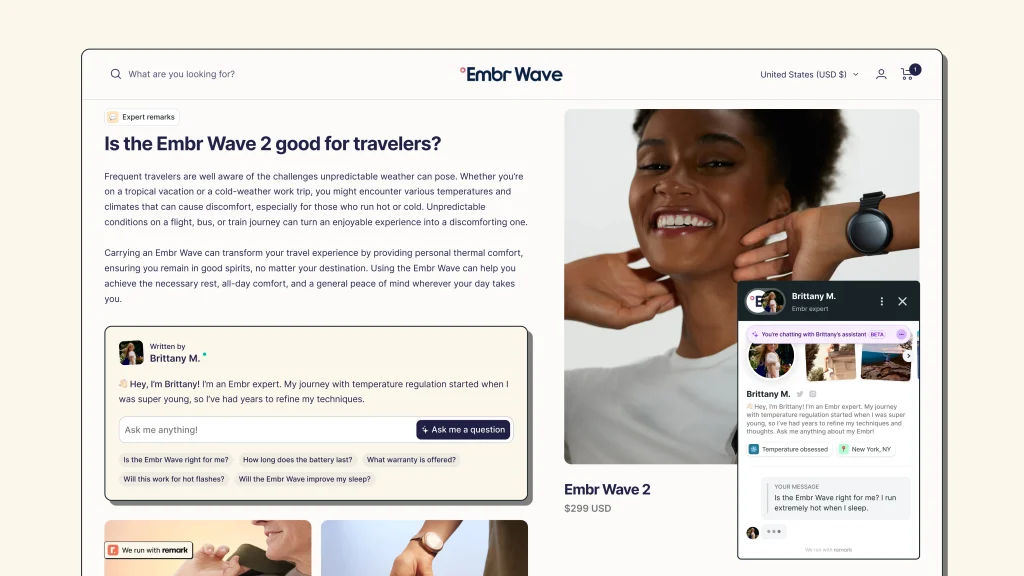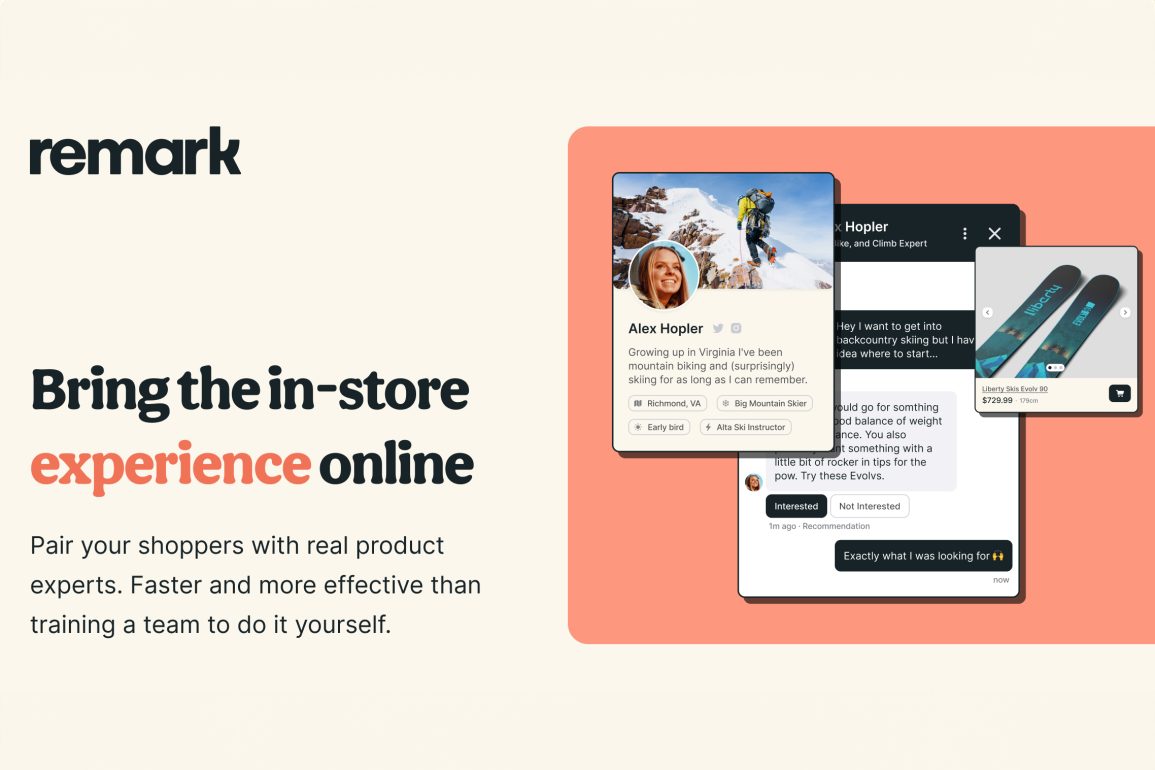Startup Remark is revolutionizing the shopping experience by leveraging artificial intelligence to assist consumers in selecting the best products. According to TechCrunch, Remark, co-founded by CEO Theo Satloff, enhances buyer confidence by connecting them with experts in various fields such as performing arts, styling, and golf through an asynchronous live chat platform.
The two-year-old company uses AI to create avatars trained on dialogues with these professionals, allowing customers to interact with virtual “experts” even when real specialists are unavailable. This technology ensures continuous expert advice availability, enhancing the shopping experience.

Remark not only offers expertise through AI avatars but also involves human professionals, who receive compensation through a percentage of platform sales. The platform provides a comprehensive shopping aid that includes human advice, AI personas, and customer-focused content such as blog posts and landing pages.

Initially focused on high-end goods, the founders—Satloff, Ian Patterson, and Carl-Philip Majgaard—discovered the emotional nature of purchasing extends to all price points. For example, interactions with buyers of Darn Tough Socks revealed that even less expensive items can involve significant emotional and consideration investments.
Remark’s services are particularly popular in sectors such as baby products, beauty, skincare, and outdoor goods. Satloff has highlighted impressive results with a 9% increase in customer revenue and a 30% conversion rate, metrics that he compares favorably to physical retail stores where about 30% of visitors make a purchase.
Beyond mere algorithmic recommendations based on past purchases, Remark’s approach to expert-assisted shopping helps consumers make informed pre-sale decisions. This contrasts with other platforms that focus on post-sale support.
Furthermore, as Remark continues to grow, it builds its own community, allowing for the generation and adaptation of new data, enhancing the relevance and effectiveness of the advice provided.

In related discussions, a Forbes article pointed out the business opportunities and challenges of AI integration and hyperpersonalization. While AI can offer personalized product recommendations and support, enhancing customer relationships, it also brings challenges. Constant evaluation of consumer needs and service improvement is necessary to maintain competitiveness. Additionally, there are increasing concerns about privacy as more personalized consumer experiences require careful handling of sensitive data.







